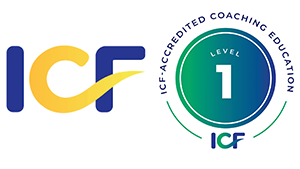In the ever-evolving field of life coaching, continuous professional development is not just a recommendation; it’s a necessity. To remain effective and relevant, coaches must commit to ongoing education and skill enhancement. This blog underscores the importance of continuous professional development and highlights various opportunities for advanced training, workshops, and certifications offered by Coach Training Alliance (CTA) to help coaches stay ahead in their field.
The Importance of Ongoing Education in Coaching
- Staying Current with Industry Trends
- The coaching industry is dynamic, with new methodologies, tools, and best practices emerging regularly. Continuous education ensures that coaches stay informed about the latest trends and advancements, enabling them to provide the best possible service to their clients.
- Enhancing Coaching Techniques
- As coaches gain more experience and knowledge, their techniques and approaches need to evolve. Advanced training helps coaches refine their skills, adopt new strategies, and enhance their overall effectiveness.
- Boosting Credibility and Trust
- Clients seek coaches who are knowledgeable and up-to-date. By pursuing ongoing education, coaches demonstrate their commitment to professional growth and excellence, which can enhance their credibility and trustworthiness in the eyes of clients.
- Expanding Career Opportunities
- Continuous professional development opens up new career opportunities. Advanced certifications and specialized training can position coaches for niche markets or higher-level coaching roles, increasing their marketability and potential earnings.
Opportunities for Advanced Training and Certifications
- Certified Coach Program
- The Certified Coach Program by CTA is designed to provide a comprehensive foundation in life coaching. This program covers essential coaching skills, business acumen, and practical application through live coaching sessions and mentorship.
- Coach Training Accelerator™
- This self-paced program offers an extensive multimedia training experience, including 346 pages of online training materials and over 8 hours of audio tutorials. It’s ideal for coaches who prefer to learn at their own pace while accessing a wealth of resources.
- Specialized Coaching Certifications
- CTA offers various specialized certifications that allow coaches to deepen their expertise in specific areas:
- Career Coaching Mastery: Focuses on helping clients navigate career transitions and achieve professional growth.
- Wellness Coaching: Equips coaches with the knowledge to guide clients towards better health and well-being.
- Executive Coaching: Prepares coaches to work with leaders and executives, enhancing their leadership skills and organizational impact.
- CTA offers various specialized certifications that allow coaches to deepen their expertise in specific areas:
- Workshops and Seminars
- Attending workshops and seminars is an excellent way to gain new insights and practical skills. CTA frequently hosts events that cover a wide range of topics, from advanced coaching techniques to business development strategies.
- Webinars and Online Courses
- For coaches looking for flexible learning options, webinars and online courses provide a convenient way to stay updated. These sessions often feature industry experts and cover the latest trends and best practices in coaching.
- Mentorship and Peer Learning
- Engaging in mentorship programs and peer learning opportunities allows coaches to learn from experienced professionals and exchange ideas with peers. CTA offers group mentoring sessions that help coaches deepen their skills and prepare for ICF credentialing.
The Role of Continuous Development in Long-Term Success
- Adaptability and Innovation
- The ability to adapt to new challenges and innovate is crucial for long-term success. Continuous learning fosters a mindset of growth and adaptability, enabling coaches to thrive in a rapidly changing environment.
- Client Satisfaction and Retention
- Well-trained coaches are better equipped to meet their clients’ needs, leading to higher satisfaction and retention rates. By continually improving their skills, coaches can deliver more impactful coaching experiences.
- Professional Fulfillment
- Continuous professional development contributes to a sense of professional fulfillment. Coaches who invest in their growth often feel more confident, competent, and passionate about their work.
Conclusion
Continuous professional development is the cornerstone of a successful coaching career. By staying committed to ongoing education and skill enhancement, coaches can ensure they remain effective, credible, and relevant in their field. Coach Training Alliance offers a variety of programs and resources designed to support coaches in their journey of continuous improvement. Whether through advanced certifications, specialized training, or engaging workshops, there are numerous opportunities to keep your coaching skills sharp and your practice thriving.
For more information on professional development opportunities, visit Coach Training Alliance.









